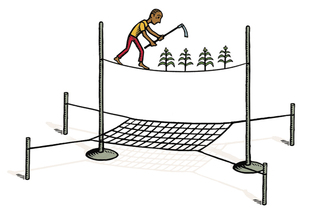 loading
loading
FindingsA non-rainy-day fundIn Ghana, relief for farmers fearing drought.  Gregory NemecView full imageMany farmers in northern Ghana with less than ten acres of land aren’t producing enough to lift their families out of poverty. A research group that includes two Yale economists and two researchers from the University of Ghana has now found a way to help them produce more. These farmers, who cultivate maize and groundnut, chronically underinvest in their farms. Without fertilizer and other technologies, their yields are low. The farmers say they want to improve their farms, but they have limited access to funds and worry about losing their investments to drought. The researchers, including Yale economics professors Christopher Udry ’91PhD and Dean Karlan, conducted a study with 1,350 smallholders. One group received unconditional capital grants; another, the control group, received nothing; and the third group received rainfall index insurance—guaranteeing that, in case of drought, they would be paid a sum equal to the average loss of a farmer in their area. The result: those who got money outright didn’t make significant investments—but those who got rainfall insurance did, and expanded production. (Preliminary findings are in a Yale Economic Growth Center working paper.) There is more work to be done, however. Both groups, says Udry, reported “many fewer days of hunger.” But the insurance did not lead to enough profits to free many families from poverty. The team plans another study to find out how to craft an insurance program that is still more effective.
The comment period has expired.
|
|